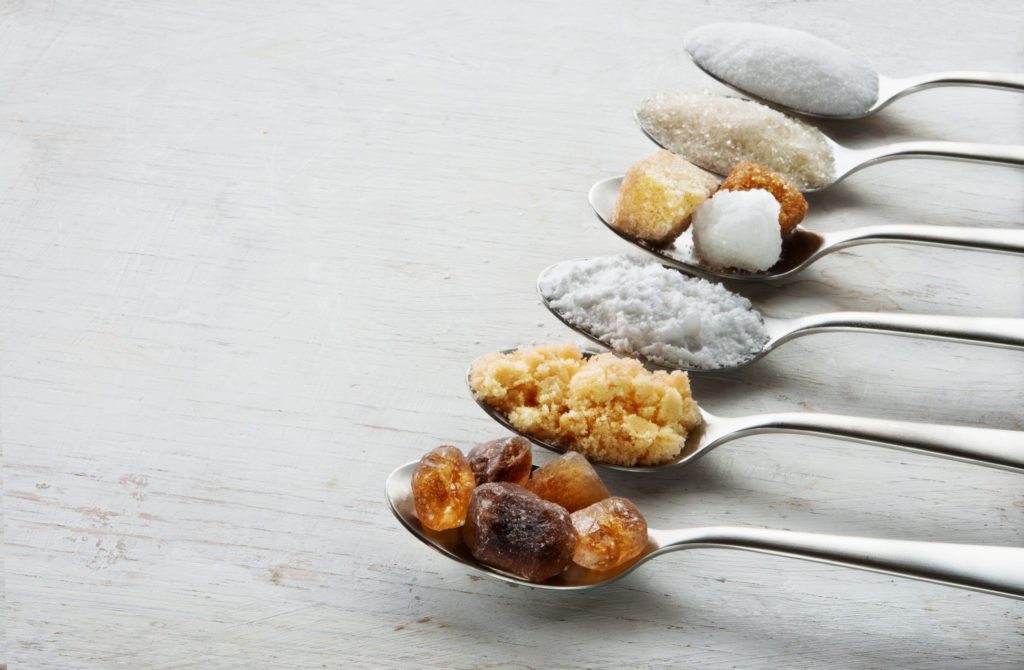How To Cut Back On Sugar

As patients of Beaverton family dentist, Dr. Barrett, know, diets high in sugar can have a negative impact on an individual’s long-term oral health. That’s because plaque, a sticky biofilm comprised of harmful oral bacteria, uses the sugars we consume to produce harmful substances that slowly erode away tooth enamel. Over time, these plaque acids can permanently damage your teeth and increase your risk of tooth decay, gum disease, cavities, and permanent tooth loss.
Fortunately, you can significantly lower your risk of oral disease and improve your overall health by cutting back on the amount of sugar you consume daily. While that may seem daunting, cutting back on sugar doesn’t have to become a major ordeal. In fact, here are a few tips on how to ease yourself of off sugar.
Look at the Label
You need to stay informed about what you’re putting into your body when trying to reduce the amount of sugar you consume daily. That means you need to take the time to read the labels of all the foods and drinks you consume. Added sugars sneak their way into a lot of different types of packaged foods that you wouldn’t otherwise think of as being sweet, such as condiments and salad dressings. Before you decide on eating anything, take a moment to look over the label so you can fully understand what’s inside. Be on the lookout for commonly used terms like “molasses” and “high-fructose corn syrup” which are just fancy terms for sugar.
Add More Healthy Fats and Lean Protein to Your Diet
For a lot of us, eating too much sugar is simply a by-product of being hungry. Those late afternoon hunger pangs lead you to the snack machine where you have very few healthy choices. Even worse, snacking on sugary items like chips and candy bars will only leave you hungry again in about hour, which means you’ll soon be back on the prowl looking for something to eat.
You can break this cycle by adding more lean protein, such turkey breast, and healthy fats, like from avocados, to your daily diet. Studies have found that eating protein, especially for breakfast, helps keep you feeling full longer throughout the day. The longer you stay feeling full, the less likely you are to eat snacks that contain more sugar than overall nutrition.
Take Your Time
When making any major change to your diet, it’s important to ease into your desired new diet rather than simply going cold turkey. If you try to simply cut sugar from your diet all at once, you’re going to find it hard to maintain your new diet no matter how much you desire it to change. Rather than just saying no to sweets altogether, try cutting back at first. Instead of having a whole cookie at lunch, only eat half. If you drink soda throughout the day, start by cutting back to just one. Making gradual improvements to your diet will make if far more likely that the changes you do make are lasting ones.
Drink More Water
Hunger pangs between meals are often the result of dehydration. By drinking plenty of water throughout the day you can help reduce the need to snack. Drinking more water also means drinking less sugary beverages like artificially sweetened fruit juice or soda that’s loaded with added sugar.
Cutting back on your daily sugar consumption can have major benefits to both your oral and overall health. While it may seem daunting, you can ask Beaverton family dentist, Dr. Barrett, about all the healthy benefits cutting back on sugar can have for you. This should provide all of the encouragement you need to just say no to sugar.
